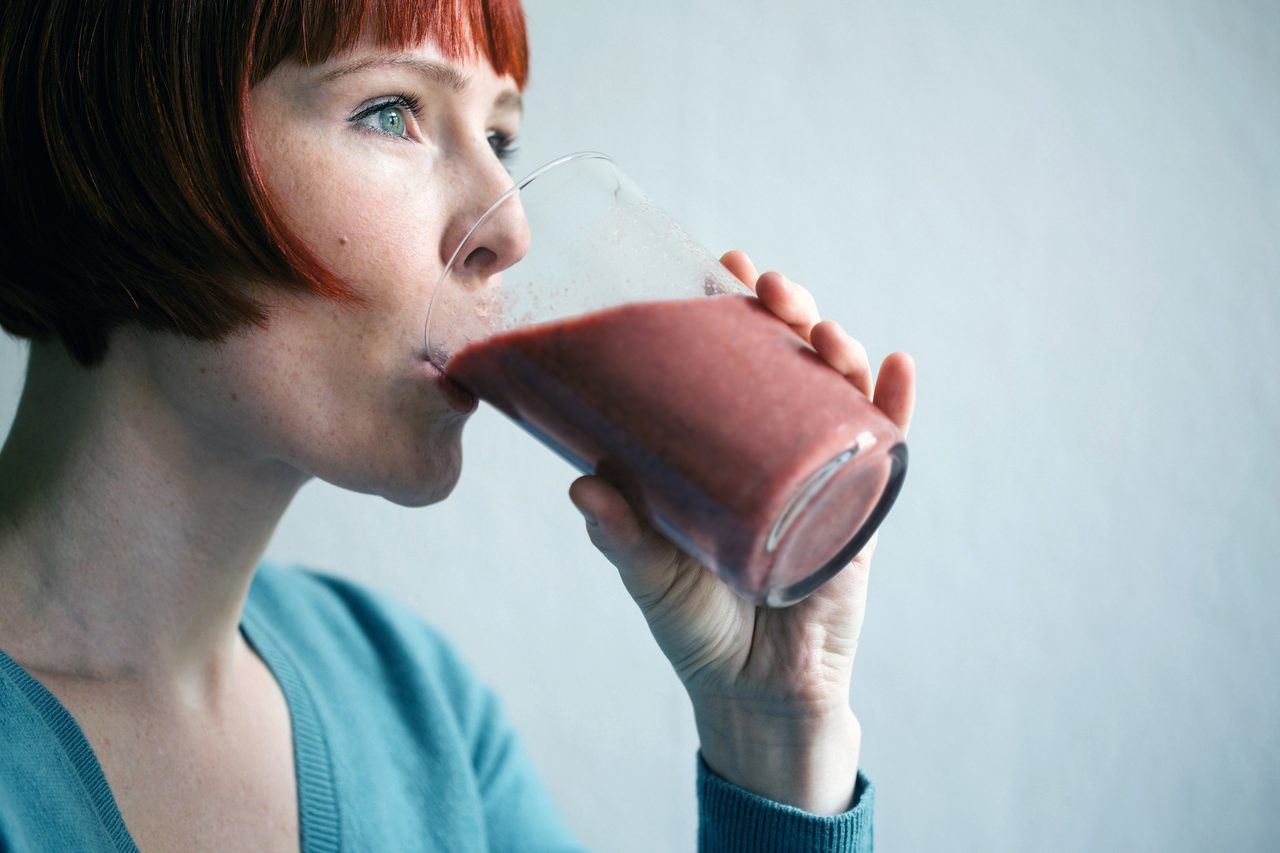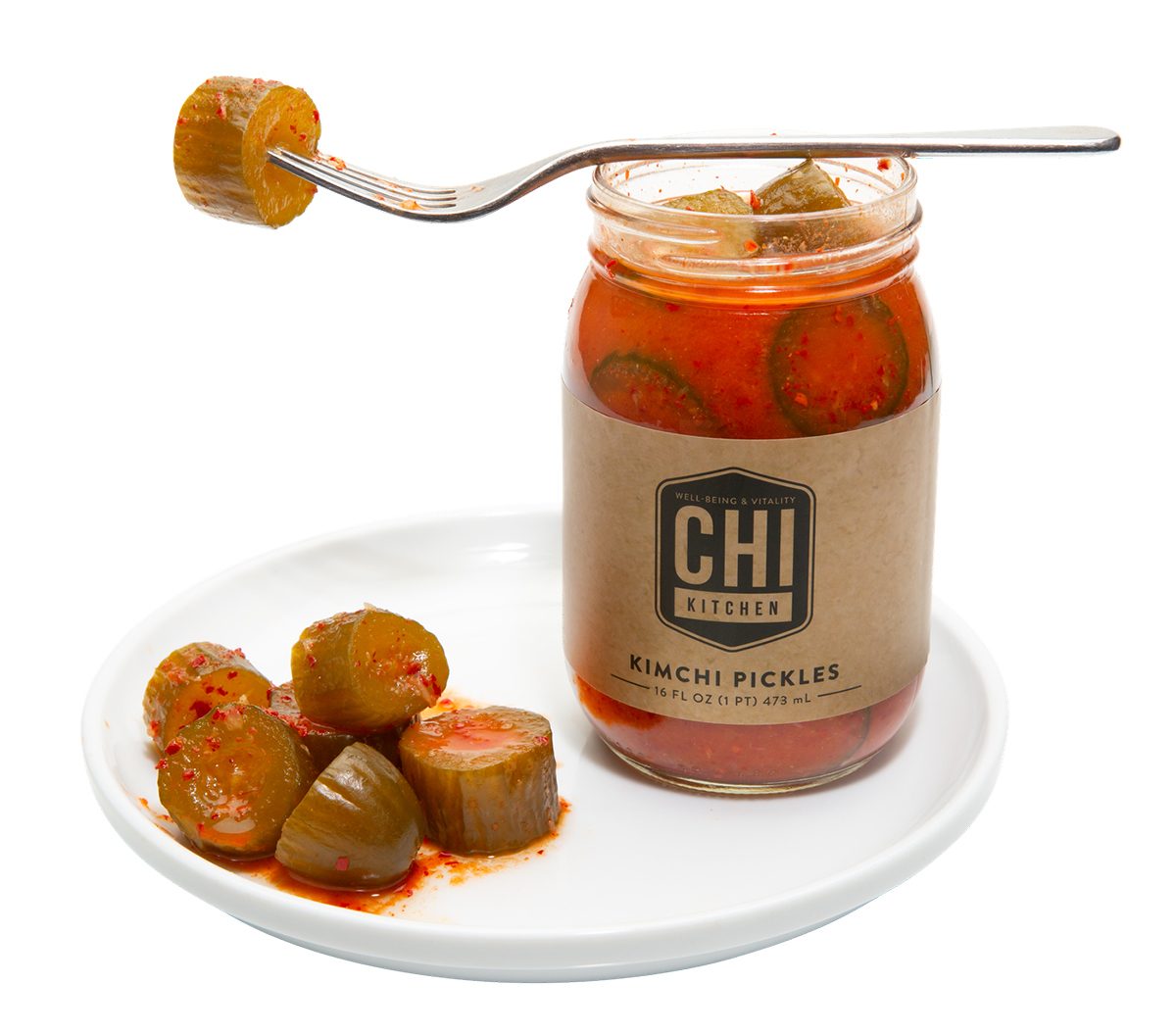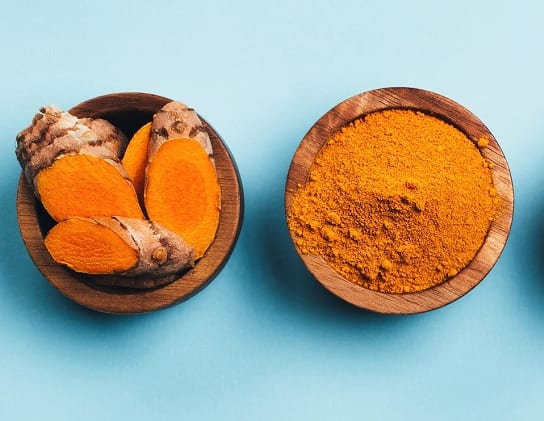2022
Predictions
DIGESTIVE HEALTH / IMMUNITY
As consumers continue to recognize the important place of digestive health in immunity and cognitive and emotional health, their appetite for food formulations that offer gastrointestinal benefits grows. As better-for-you food and beverage formulators strive to stay up to date on new ingredients in the pipeline, it’s worth a brief look at a few key ingredients expected to trend in the coming year and beyond.
The polyphenolic compound curcumin, found primarily in turmeric, has long been recognized for myriad health benefits, ranging from antioxidant and anti-inflammatory properties to antidiabetic effects and hepatoprotective mechanisms. But while curcumin is nothing new to food formulations, emerging research has investigated its bioavailability and effects on gut microbes, with surprising results.
Comprehensive review articles published in the past two years suggest that curcumin’s bioavailability, previously believed to be low, hinges on the health of one’s microbiome. The research indicated that curcumin’s beneficial effects arise via modulation of gut microbial populations and as a metabolite after being acted upon by said microbes.
We look at where the hot trend of digestive health, immunity, and the gut-brain connection is heading.
The Future of Digestive Health

With immunity forefront in the minds of today’s consumers, its connection to digestive health spells unprecedented options for nutrition support. Photo courtesy of: Functional Products Trading SA/Benexia
By DEVON GHOLAM, PhD, Contributing Nutrition Editor
Evidence also indicates curcumin plays a role in the gut-brain axis. Results from a study published earlier this year revealed that a daily dosage of 500mg of a dispersible, oleoresin-based curcumin extract decreased self-reported gastrointestinal symptoms and anxiety scores over eight weeks and without significant adverse side effects.
A pharmacokinetic clinical trial on the same extract, also published this year, showed enhanced bioavailability compared to a standard curcumin extract. These results indicate that the preparation of curcumin impacts its bioavailability outside the digestive tract. With curcumin already popular, adding the ingredient along with live cultures could be successful in preparations ranging from live fermented vegetables (such as sauerkraut, fermented pickled vegetables, and kimchi) to yogurts and kefir.
In the post
A new angle on digestive health that’s gaining traction is that of so-called “postbiotics.” Probiotics, of course, are the darlings of gut health. Everything hinges on those trillions of microbes that help us out in multiple ways. And the rise in popularity of prebiotic fibers needed to feed the little helpers brought a renaissance to fiber’s position as a turn-to ingredient for health.

Consumers are enjoying natural probiotics from a greater array of sources, such as kimchi and fermented pickled vegetables. Photo courtesy of: CHI Kitchen, Inc.
The idea behind postbiotics is that, in addition to the microbes and their dinner of various fibers, benefit can be derived from ingredients that are the same as those beneficial ingredients produced by the microbes. These range from the exopolysaccharides, enzymes, peptides, and cell-surface proteins from the microbes themselves to microbial metabolites that have demonstrated specific positive actions in the body. Key among these ingredients are butyrate, propionate, and acetate.
Butyrate, propionate, and acetate are primary short-chain fatty acids (SCFAs) that microbes produce when they contribute to the fermentation of non-digestible fibers and resistant starches. A number of research papers have supported their ability to aid in promoting satiety and blood sugar and blood lipid management, as well as their anti-inflammatory (especially regarding inflammatory bowel diseases), antioxidant, and even anti-cancer abilities. Phenylalanine-butyramide is a recently launched ingredient that helps increase butyrate in the bloodstream and has been shown in studies to be an effective anti-inflammatory agent.
Unlike probiotics, postbiotics are stable compounds that hold up during storage and processing. Moreover, phenylalanine-butyramide is an odorless, flavorless ingredient. This makes it and similar postbiotics to digestive health-targeting products easy to include in food and beverage formulations.


New to the digestive health toolbox are postbiotics—beneficial compounds such as short-chain fatty acids normally produced by the metabolism of prebiotic fibers by probiotic bacteria.
Fuzzy logic
Kiwi recently has been well researched for its potential health benefits as a source of antioxidants and vitamins. Powders made from the fuzzy green fruit contain significant amounts of fiber, phenolic compounds, and actinidin, a proteolytic enzyme unique to kiwifruit. Actinidin is similar to other fruit enzymes, such as papain and bromelain, both known to aid in digestion. A recent study showed that actinidin can hydrolyze gluten protein in greater amounts than comparable enzymes in simulated gastric conditions.
Clinical trials indicate that kiwi powder has promise in alleviating constipation and irritable bowel syndrome (IBS)-associated symptoms. Such benefits are thought to be due to the actinidin content in kiwifruit as well as the fiber, and to positive changes elicited in the gut microbiome.

Studies of curcumin, the active compound from turmeric, indicate that its bioavailability, once thought to be low, actually could depend on the state of one's microbiome. Photo courtesy of: Arjuna Naturals, Ltd.
Going psycho
The connection between the digestive tract, microbes, and brain has received increasing attention in the last few years. Psychobiotics are defined as probiotics that affect this gut-brain axis, although some scientists argue this definition should encompass prebiotics as well as any other compounds that influence mental health via the gut. They present a unique avenue to ameliorate anxiety and depression without the side effects often experienced with psychotropic medications.
One species that has been studied for its gut-brain effects is Bifidobacterium adolescentis, particularly as it relates to the production of gamma-aminobutyric acid (GABA), an inhibitory neurotransmitter implicated in anxiety and depression. An animal study published last year showed increased stimulation of in vivo GABA production in subjects that were fed B. adolescentis strains.
Recent studies also showed the potential of this Bifidobacteria strain to alleviate non-alcoholic fatty liver disease (NAFLD), depression, and gut dysbiosis in animal models, although more clinical trials are warranted to understand its full potential. As digestive health moves to center stage for consumers, product developers have excellent opportunities to go with their gut and create foods and beverages that appeal on multiple levels to this consumer need. PF
Regular contributor Devon Gholam, PhD, holds a doctorate in food science from Purdue University. She has extensive experience in better-for-you product development and research, including food product design, formulation/reformulation, sensory methodology, statistical analysis, experimental design, and analytical techniques such as HPLC, GC, and FTIR. Dr. Gholam has worked for such food and ingredient companies as Roquette America Inc., Ganeden Biotech Inc., and Kellogg Co. Reach her at dld@devonlynndurkee.com.
December 2021
